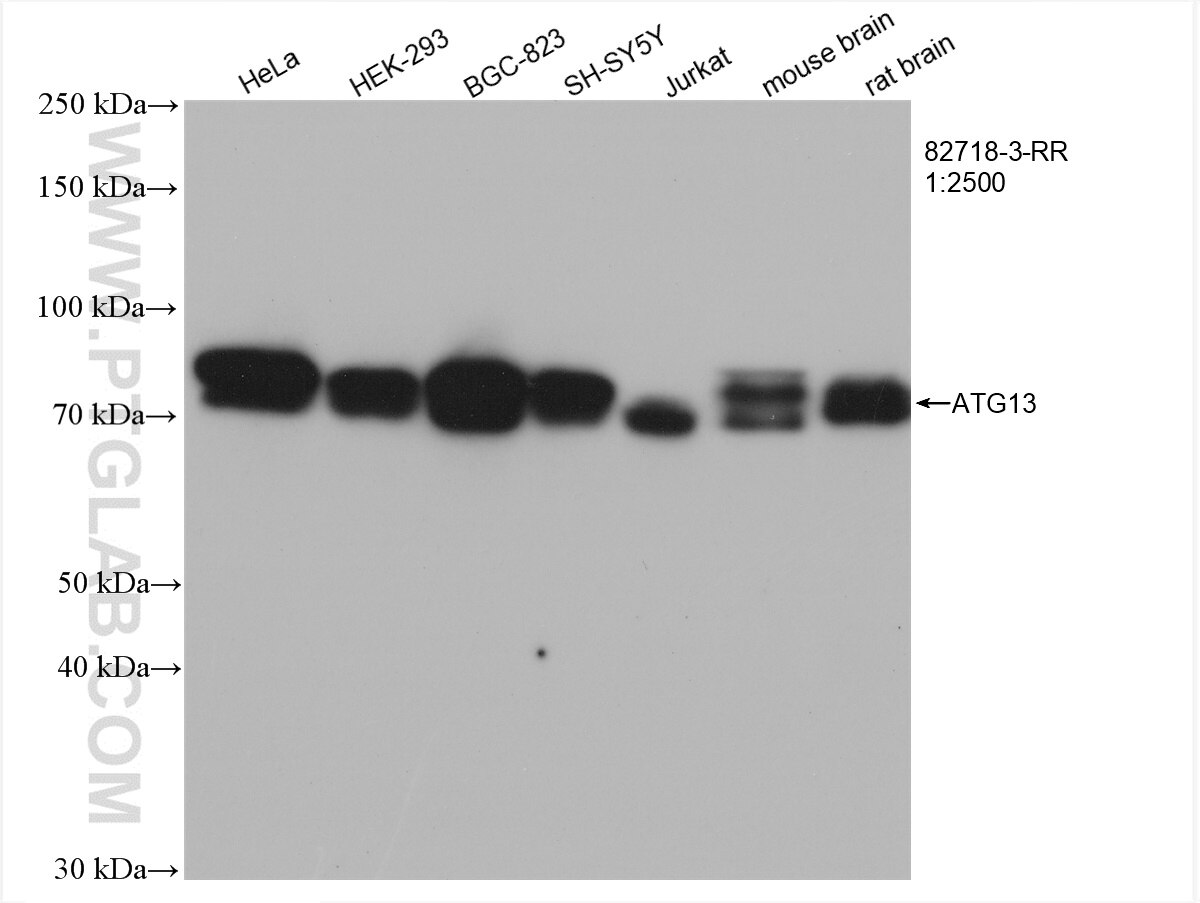KIAA0652 Rekombinanter Antikörper
KIAA0652 Rekombinant Antikörper für WB, ELISA
Wirt / Isotyp
Kaninchen / IgG
Getestete Reaktivität
human, Maus, Ratte
Anwendung
WB, ELISA
Konjugation
Unkonjugiert
CloneNo.
3G14
Kat-Nr. : 82718-3-RR
Synonyme
Galerie der Validierungsdaten
Geprüfte Anwendungen
| Erfolgreiche Detektion in WB | HeLa-Zellen, BGC-823-Zellen, Jurkat-Zellen, Maushirngewebe, Rattenhirngewebe, SH-SY5Y-Zellen |
Empfohlene Verdünnung
| Anwendung | Verdünnung |
|---|---|
| Western Blot (WB) | WB : 1:1000-1:5000 |
| It is recommended that this reagent should be titrated in each testing system to obtain optimal results. | |
| Sample-dependent, check data in validation data gallery | |
Produktinformation
82718-3-RR bindet in WB, ELISA KIAA0652 und zeigt Reaktivität mit human, Maus, Ratten
| Getestete Reaktivität | human, Maus, Ratte |
| Wirt / Isotyp | Kaninchen / IgG |
| Klonalität | Rekombinant |
| Typ | Antikörper |
| Immunogen | KIAA0652 fusion protein Ag13090 |
| Vollständiger Name | KIAA0652 |
| Berechnetes Molekulargewicht | 57 kDa |
| Beobachtetes Molekulargewicht | 70 kDa |
| GenBank-Zugangsnummer | BC001331 |
| Gene symbol | KIAA0652 |
| Gene ID (NCBI) | 9776 |
| Konjugation | Unkonjugiert |
| Form | Liquid |
| Reinigungsmethode | Protein-A-Reinigung |
| Lagerungspuffer | PBS mit 0.02% Natriumazid und 50% Glycerin pH 7.3. |
| Lagerungsbedingungen | Bei -20°C lagern. Nach dem Versand ein Jahr lang stabil Aliquotieren ist bei -20oC Lagerung nicht notwendig. 20ul Größen enthalten 0,1% BSA. |
Hintergrundinformationen
ATG13 is one component protein of the ULK1 complex which is required for autophagosome formation and mitophagy. ATG13 has two nutrient regulatory phosphorylation sites and the phosphorylation status of ATG13 affect regulation of autophagy by modulating enzyme activity and cellular localization of ULK1. Besides, it has been reported the nonautophagic function of ATG13 on cardiac development for ATG13-deficient embryos show myocardial growth defects.(PMID:27387056, 26801615, 26644405)
Protokolle
| Produktspezifische Protokolle | |
|---|---|
| WB protocol for KIAA0652 antibody 82718-3-RR | Protokoll herunterladen |
| Standard-Protokolle | |
|---|---|
| Klicken Sie hier, um unsere Standardprotokolle anzuzeigen |


